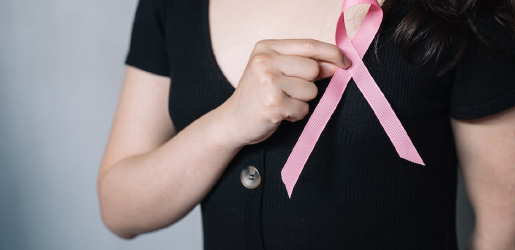Breast Cancer Screening in Malaysia: Everything You Need to Know
25 October 2022
Breast cancer is the most common cancer in Malaysian women, affecting 1 in 19 women.
Making healthier lifestyle choices – exercising regularly, maintaining a healthy weight and limiting your alcohol intake – can help minimize your risk of developing breast cancer. However, even with a healthy lifestyle, it is still important for you to get a yearly breast cancer screening to detect breast cancer early, which will in turn will greatly increase your chances for survival.

Did You Know?
Women with dense breasts have a higher chance of getting breast cancer. The denser your breasts are, the higher your risk as dense tissue can hide cancer. In such cases, a 3D mammogram may offer greater advantages in helping detect hidden tumours as it provides radiologists with a clearer view of your breasts.
Take Steps to Ensure Early Detection of Breast Cancer
Doing regular breast self-examinations is crucial to help you be aware of how your breasts normally look and feel, as well as spot symptoms such as lumps, pain, or abnormal changes in size. In addition to this, a clinical breast examination and screening every year should be done even if you do not detect any abnormalities, as breast cancer often does not present any symptoms at its earliest, most treatable stage.
A breast cancer screening might consist of one or more of these procedures. This might depend on your age, weight and other risk factors.
-
Mammogram
A specialized medical imaging that uses a low-dose x-ray system to see inside the breasts. This provides a more detailed X-ray of the breast, and is often the most common screening test for breast cancer. -
Breast Ultrasound
A machine that uses sound waves to make pictures, called sonograms, of areas inside the breast. This is not usually used as a routine breast cancer screening test, but it can be useful in determing if lump is a fluid-filled cyst or hard tumour. -
Magnetic Resonance Imaging (MRI)
A kind of body scan that uses a magnet linked to a computer. The MRI scan makes detailed pictures of areas inside the breast and may be used as a screening test for those with a high risk of breast cancer.
How Often Should I Get a Mammogram?
Even though you might be cleared after your first mammogram, breast tissue can still change over time. Here is a guide to how often you should get checked based on your age:
-
Age 20 and above: Get a breast examination with your health care provider every 3 years.
-
Age 40 - 44: You can start annual breast cancer screening with mammogram.
-
Age 45 - 54: You should get a mammogram every year.
-
Age 55 and older: You should switch to mammograms every 2 years, or continue yearly screening.
Pregnant women are advised not to undergo a mammogram examination, as the x-ray radiation can be harmful to the fetus. If you have just given birth, you should only have a mammogram at least six months after you stop breastfeeding for the most accurate results.
Things You Should Know Before Your Mammogram
-
Avoid having your mammogram screening the week before you get your period or during your period. Your breasts may be tender or swollen. The best time is the week after your period.
-
On the day of your mammogram, do not wear deodorant, perfume, or powder. These products can show up as white spots on the X-ray and reduce the accuracy of your results.
-
Bring any images from prior mammograms you had, if any.
FAQs About Mammograms
You may find a mammogram uncomfortable. While the X-ray is being taken, you may feel some pressure from both plates, but any discomfort should only last a few seconds.
If you are still having your period, it may be best to make your appointment after your period when your breasts are less tender.
Ultrasound is used along with other tests to screen for breast cancer.
If an abnormality is seen on a mammogram or felt through a physical exam, you may be required to go for an ultrasound to determine if the abnormality is solid or fluid-filled.
However, an ultrasound will not be able to determine whether the abnormality is cancerous. A breast biopsy will be done to determine whether cancer is present.
What happens if my mammogram result comes back abnormal?
An abnormal mammogram result does not always mean cancer is present. In such cases, your doctor will order follow-up tests to diagnose breast cancer or determine that no cancer has developed.
Wondering if you’re at risk of developing breast cancer? Complete the SunMed Breast Cancer Comprehensive Health Assessment Tool (SunMed C.H.A.T) now to find out (takes only 5 minutes!): sunmedchat.com/breast-cancer/
Speak to our breast specialists now to for an expert consultation regarding your risk of getting breast cancer:
Resources :
https://www.cdc.gov/cancer/breast/basic_info/dense-breasts.htm
https://www.homage.com.my/health/mammograms/
https://pubmed.ncbi.nlm.nih.gov/22126511/#:~:text=The%20current%20screening%20policy%20for,for%20age%2040%20and%20above.





